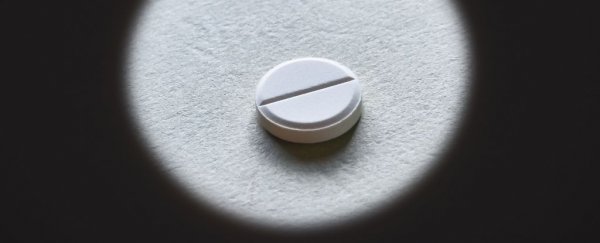In 1771, the German physician Hieronymus David Gaubius introduced the western scientific community to "a medication with many promises" – zinc.
More than 200 years later, we can find it amongst the many supplements on pharmacy shelves. It's even known to be one of the rare things that might help fight off a common cold. Or does it?
Evidence for zinc supplement use is limited, study results have been mixed, and dosage, formulation and length of prescription have not been investigated properly to date.
A new meta-analysis of 28 randomized controlled trials has now strengthened the notion that supplementing zinc could prevent symptoms and shorten the duration of viral respiratory infections, like the common cold or the flu.
"It is commonly thought that zinc's role in preventing and treating infections is only for people who are zinc deficient; our findings really challenge this notion," says integrative medicine doctor Jennifer Hunter from Western Sydney University in Australia.
"The two large trials from China found very low dose zinc nasal spray reduced the risk of clinical illness. The two smaller trials in the US that evaluated the preventive effects of oral zinc excluded people who were zinc deficient.
"All the other trials that evaluated zinc for treating the common cold were in populations where zinc deficiency is very unlikely."
When zinc was taken as a preventative measure, the analysis found there was a 28 percent lower risk of developing milder symptoms, and an 87 percent lower risk of developing moderately severe symptoms.
As a treatment, taken after getting sick, zinc was also found to slightly reduce the time symptoms stuck around for. Usually, taking zinc reduced the worst symptoms by around two days.
That's a fairly minimal effect, especially when you consider the symptoms remained just as severe overall. What's more, if the patient is purposefully infected with a cold virus, the zinc doesn't stop them from contracting the illness.
This analysis is an intriguing step forward, but the researchers also caution that some of the studies included were small, did not compare the same dosages, and could include bias in the reporting of symptoms. This is something that always has to be kept in mind when conducting meta-analyses – the resulting data will only be as reliable as the input.
Also, while the findings are interesting, they can't tell us much about how zinc actually curbs a viral infection like a cold.
Before the late 18th century, when Gaubius offered up the 'secret drug' he had 'found', zinc was mostly being sold by alchemists to treat severe convulsions. When Gaubius got his hands on the powder, however, he discovered it was nothing more than zinc oxide.
For a while in the 19th century, zinc was used to treat epilepsy, but by the 20th century, the medication had faded out of popularity and out of our minds.
It wasn't until the 1960s that zinc resurfaced as a potential treatment for natural zinc deficiencies and a rare inherited disorder called Wilson's disease, which causes a build-up of copper in vital organs. As an anti-copper agent, zinc has since proved to be quite an effective treatment for this neurological disease.
When it comes to fighting viral infections, however, its potential remains largely unrealized.
Nevertheless, some health guidelines recommend oral zinc for those fighting lower respiratory infections, and the recent COVID-19 pandemic has brought its potential to light again.
Despite pending results from a few randomized control trials, some healthcare workers have already started to use zinc as a treatment for COVID-19.
The risks are low if the patient is screened correctly and the dosage does not get too high. Unless a person has a disorder that allows bodily zinc to filter into the brain, there are almost no serious health effects from taking the supplement.
Some dosages of zinc can, however, come with non-serious side effects, like nausea or, as is common with using too much zinc nasal spray, a loss of smell. And overall, we still don't even know what's the best way to take zinc, either.
"Clinicians and consumers need to be aware that considerable uncertainty remains regarding the clinical efficacy of different zinc formulations, doses and administration routes," says Hunter.
"At the moment there just isn't enough research to say whether a zinc nasal spray, versus a nasal gel, versus a lozenge, versus oral zinc is any better or worse than the others. Most of the trials used zinc gluconate or zinc acetate formulations, but that doesn't mean that other zinc compounds are less effective."
We simply need more research. Gaubius would surely agree.
The study was published in BMJ Open.
